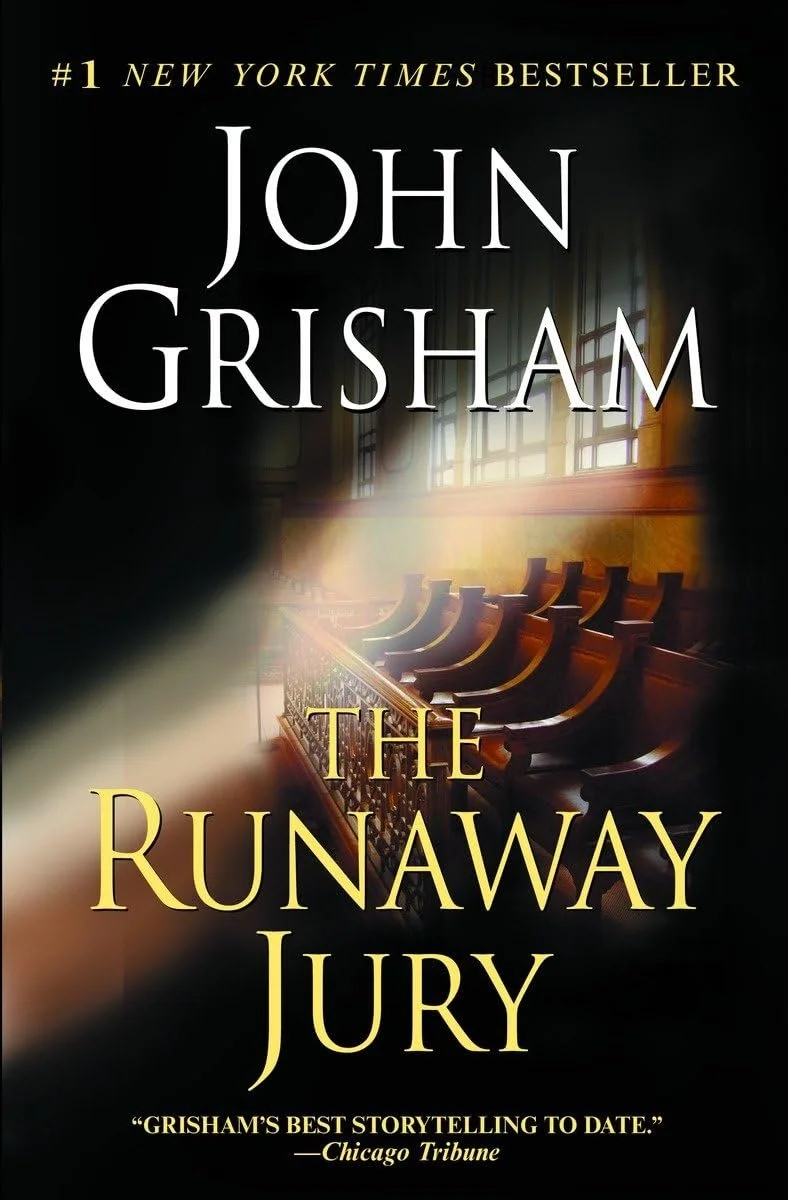The Runaway Jury

The Runaway Jury
By John Grisham
Jury for sale...fictitiously, of course.
After about a week and a half, I've just finished reading The Runaway Jury by John Grisham. Now, I admit to having seen the movie before reading the novel, but the book differs so much in story line that both might as well be two completely different stories altogether.
Grisham takes his readers and puts them in his normal trial-novel layout that resembles something like a high-stakes legal poker game. But just as the reader thinks that it's another novel resembling a long, emotional trial such as in A Time to Kill (one of my favorites of his novels), Grisham shows his skill as a storyteller by turning it into a game of "find the ace" with the reader by introducing a slick woman known only as "Marlee." Just when the reader begins to unravel what's going on and thinks they've figured out what will happen and why, Grisham picks up the pace, moving his cards faster and faster as he takes the reader from Mississippi to Florida to Kansas to Louisiana to Texas to Missouri until it's impossible to tell what will happen next.
Meanwhile, I would say the major issue I have had with reading this is the actual craft he employs in the narrative aspect of the piece. He uses quite a few colloquial figures of speech and exclamation points to tell the reader what is going on, a slightly distracting manner of writing for this novel that doesn't necessarily work in some scenes. Especially ones where the reader is meant to have an emotional connection with the work.
One of the important things I’ve learned over the years is that your tone should fit the kind of story you’re telling. I remember reading a few stories in my undergrad workshops where students felt they could capture a connection to the reader just by being colloquial. While everyday language certainly has a place—and writers should tell it how it feels natural to tell it when writing the text—you always want to be certain that the tone of the scene matches what you’re trying to convey. Grisham stumbles with this at times.
However, if there is any distraction, Grisham quickly recaptures the reader's attention with his incredible characterization through Marlee. She's the kind of character who stands out for her smooth dialogue and attention to detail which puts her a step ahead of everyone, including the reader. She leaves the reader guessing what her next move is and keeps them wanting to read if only to glimpse at her next appearance in the story.
At the same time, Grisham weaves in heavy narrative about the effects of smoking. While at first glance anyone could look at the copyright page and deduce that because it was published in 1996 that it's a vehicle for anti-smoking campaign during the era of Big Tobacco companies adding more nicotine to their cigarettes, this factor actually adds depth to the novel. It makes the reader feel strongly about what is at stake and why they should care about the game going on at all, taking them from merely reading the book to being involved. Choosing a side with the characters and hoping for a specific outcome of the trial.
If you haven't read it, I'd highly recommend it. Especially for emerging writers looking to examine how tone and characterization work in a novel.
